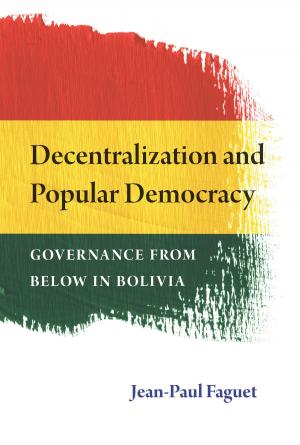Beyond Groupthink
Political Group Dynamics and Foreign Policy-making
Nonfiction, Health & Well Being, Psychology| Author: | Paul 't Hart | ISBN: | 9780472022779 |
| Publisher: | University of Michigan Press | Publication: | March 25, 2010 |
| Imprint: | University of Michigan Press | Language: | English |
| Author: | Paul 't Hart |
| ISBN: | 9780472022779 |
| Publisher: | University of Michigan Press |
| Publication: | March 25, 2010 |
| Imprint: | University of Michigan Press |
| Language: | English |
Strategic issues and crises in foreign policy are usually managed by relatively small groups of elite policymakers and their closest advisors. Since the pioneering work of Irving Janis in the early 1970s, we have known that the interplay between the members of these groups can have a profound and, indeed, at times a pernicious influence on the content and quality of foreign policy decisions. Janis argued that "groupthink," a term he used to describe a tendency for extreme concurrence-seeking in decision-making groups, was a major cause of a number of U.S. foreign policy fiascoes. And yet not all small groups suffer from groupthink; in fact many high-level bodies are handicapped by an inability to achieve consensus at all.
Beyond Groupthink builds upon and extends Janis's legacy. The contributors develop a richer understanding of group dynamics by drawing on alternate views of small-group dynamics. The relevant literature is reviewed and the different perspectives are explored in detailed case studies. The contributors link the group process to the broader organizational and political context of the policy process and stress the need to develop a multi-level understanding of the collegial policy-making process, combining the insights drawn from micro-level theories with those derived from study of broader political phenomena. The contributors include Alexander George, Sally Riggs Fuller, Paul D. Hoyt, Ramon J. Aldag, Max V. Metselaar, Bertjan Verbeek, J. Thomas Preston, Jean A. Garrison, and Yaacov Y. I. Vertzberger.
This book should appeal to political scienctists and international relations specialists, as well as researchers in social psychology, public administration, and management interested in group decision-making processes.
Paul 't Hart is Associate Professor, Department of Public Administration, Leiden University and Scientific Director of of the Leiden-Rotterdam Crisis Research Center. Eric Stern is Professor of Political Science at Stockholm University. Bengt Sundelius is Professor of Political Science at Stockholm University.
Strategic issues and crises in foreign policy are usually managed by relatively small groups of elite policymakers and their closest advisors. Since the pioneering work of Irving Janis in the early 1970s, we have known that the interplay between the members of these groups can have a profound and, indeed, at times a pernicious influence on the content and quality of foreign policy decisions. Janis argued that "groupthink," a term he used to describe a tendency for extreme concurrence-seeking in decision-making groups, was a major cause of a number of U.S. foreign policy fiascoes. And yet not all small groups suffer from groupthink; in fact many high-level bodies are handicapped by an inability to achieve consensus at all.
Beyond Groupthink builds upon and extends Janis's legacy. The contributors develop a richer understanding of group dynamics by drawing on alternate views of small-group dynamics. The relevant literature is reviewed and the different perspectives are explored in detailed case studies. The contributors link the group process to the broader organizational and political context of the policy process and stress the need to develop a multi-level understanding of the collegial policy-making process, combining the insights drawn from micro-level theories with those derived from study of broader political phenomena. The contributors include Alexander George, Sally Riggs Fuller, Paul D. Hoyt, Ramon J. Aldag, Max V. Metselaar, Bertjan Verbeek, J. Thomas Preston, Jean A. Garrison, and Yaacov Y. I. Vertzberger.
This book should appeal to political scienctists and international relations specialists, as well as researchers in social psychology, public administration, and management interested in group decision-making processes.
Paul 't Hart is Associate Professor, Department of Public Administration, Leiden University and Scientific Director of of the Leiden-Rotterdam Crisis Research Center. Eric Stern is Professor of Political Science at Stockholm University. Bengt Sundelius is Professor of Political Science at Stockholm University.















